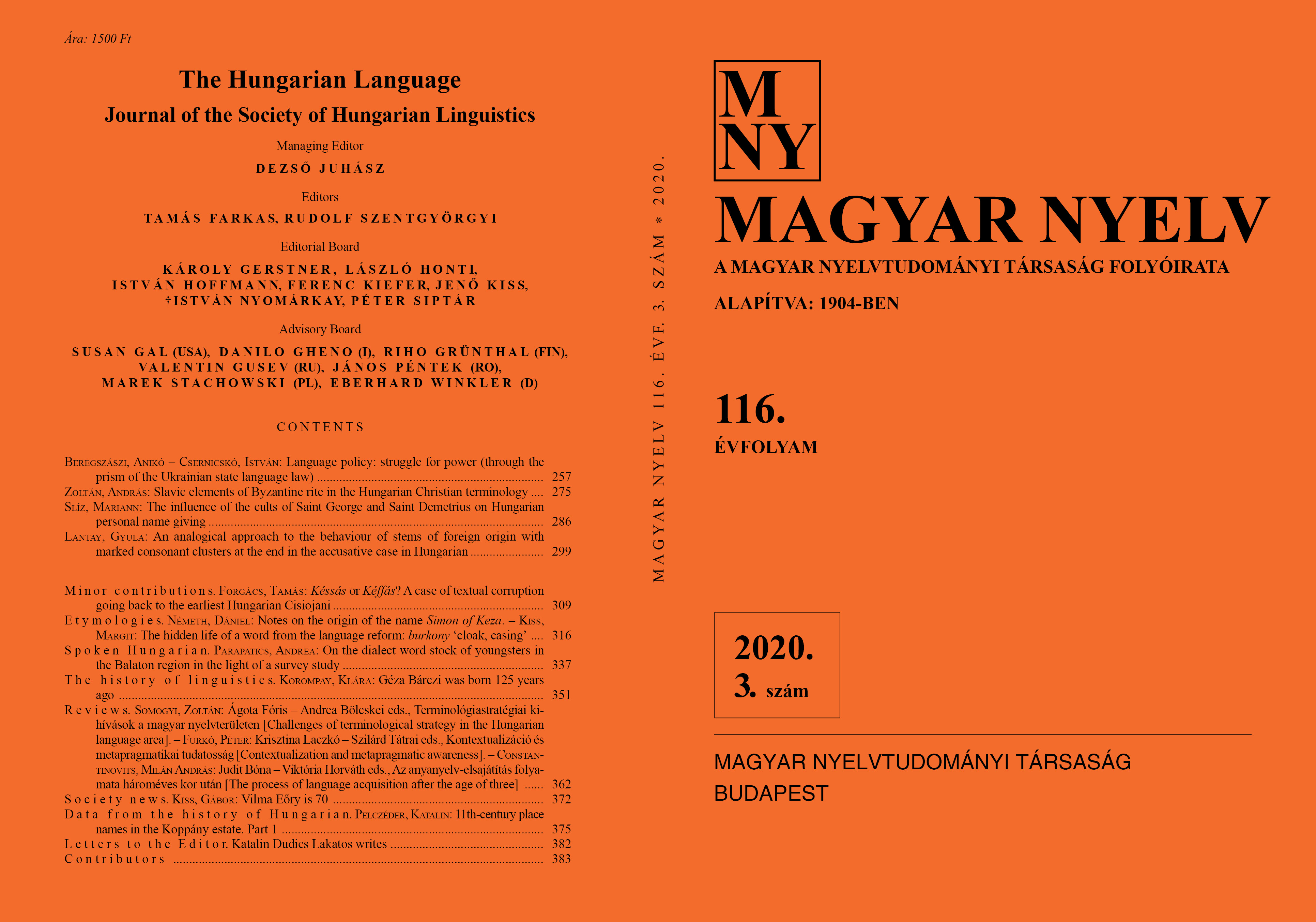Language policy: struggle for power (through the prism of the Ukrainian state language law)
DOI:
https://doi.org/10.18349/MagyarNyelv.2020.3.257Keywords:
language policy, state language, language law, minority rights, language and power, inequality, UkraineAbstract
One of the main goals of language policy is considered to be the avoidance or management of language conflicts. In reality, however, language policy is an effective tool for achieving the unequal distribution of social goods and political capital. The Law of Ukraine “On Supporting the Functioning of the Ukrainian Language as the State Language” was adopted on April 25, 2019. In this article we show how language policy can serve as a tool in the struggle for power and in the formation and reproduction of social inequalities through the law seemingly born to protect the Ukrainian language. In the article, we also show that in power struggles, language policy often does not serve to avoid conflicts over language, but on the contrary: it causes internal and external conflicts.
Downloads
Published
Issue
Section
License
Copyright (c) 2024 Anikó Beregszászi, István Csernicskó

This work is licensed under a Creative Commons Attribution-NonCommercial-NoDerivatives 4.0 International License.
Magyar Nyelv is a Diamond Open Access periodical. Documents can be freely downloaded and duplicated in an electronic format, and can be used unchanged and with due reference to the original source. Such use must not serve commercial purposes. In the case of any form of dissemination and use, Hungarian Copyright Act LXXVI/1999 and related laws are to be observed. The electronic version of the journal is subject to the regulations of CC BY-NC-ND (Creative Commons – Attribution-NonCommercial-NoDerivatives).
The journal permits its authors, at no cost and without any temporal limitation, to make pre-print copies of their manuscripts publicly available via email or in their own homepage or that of their institution, or in either closed or free-for-all repositories of their institutions/universities, or other non-profit websites, in the form accepted by the journal editor for publication and even containing amendments on the basis of reviewers’ comments. When the authors publicize their papers in this manner, they have to warn their readers that the manuscript at hand is not the final published version of the work. Once the paper has been published in a printed or online form, the authors are allowed (and advised) to use that (post-print) version for the above purposes. In that case, they have to indicate the exact location and other data of the journal publication. The authors retain the copyright of their papers; however, in the case of an occasional secondary publication, the bibliographical data of the first publication have to be included.



